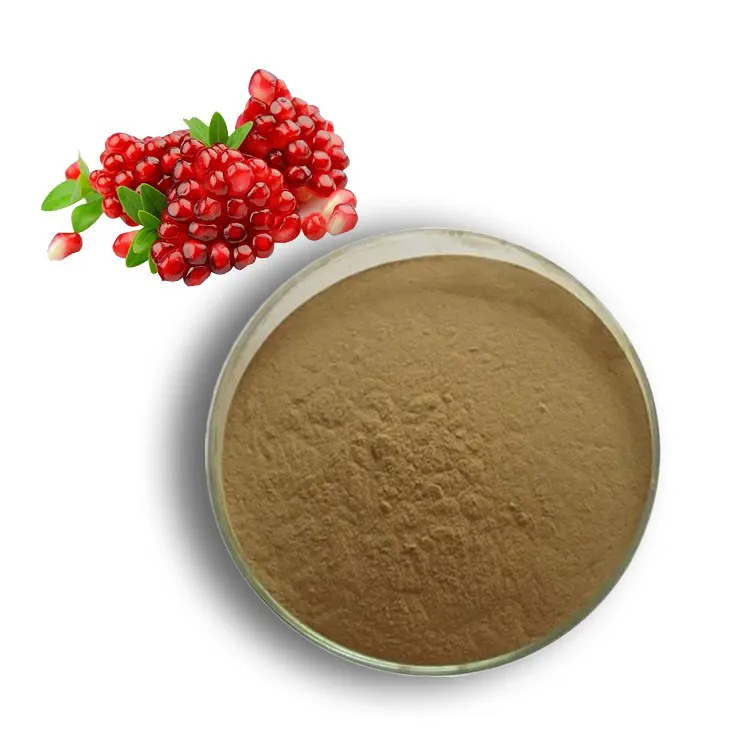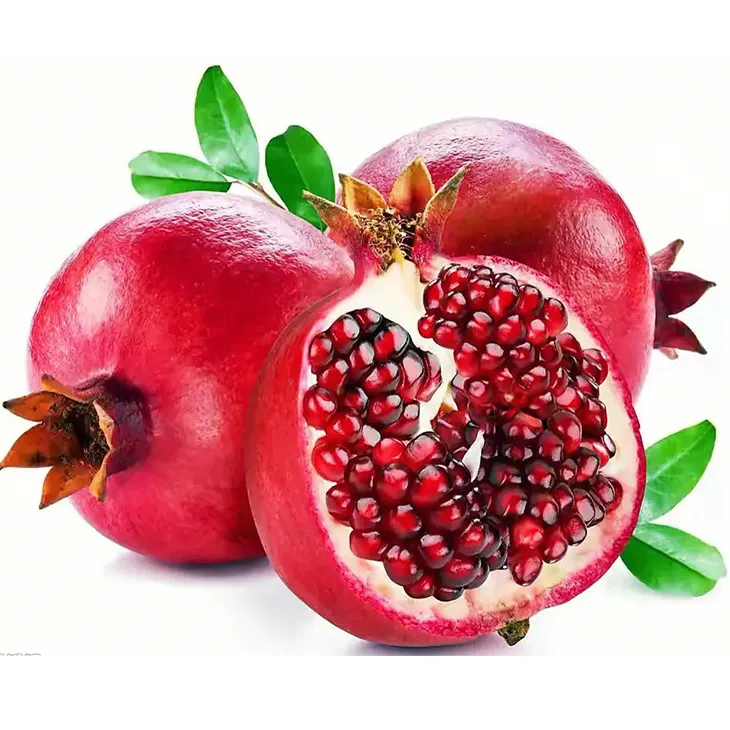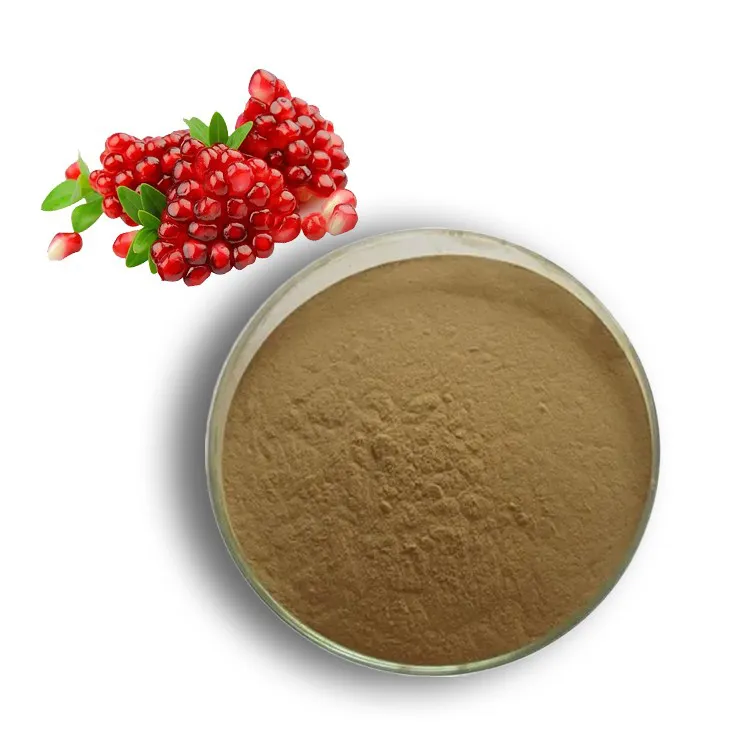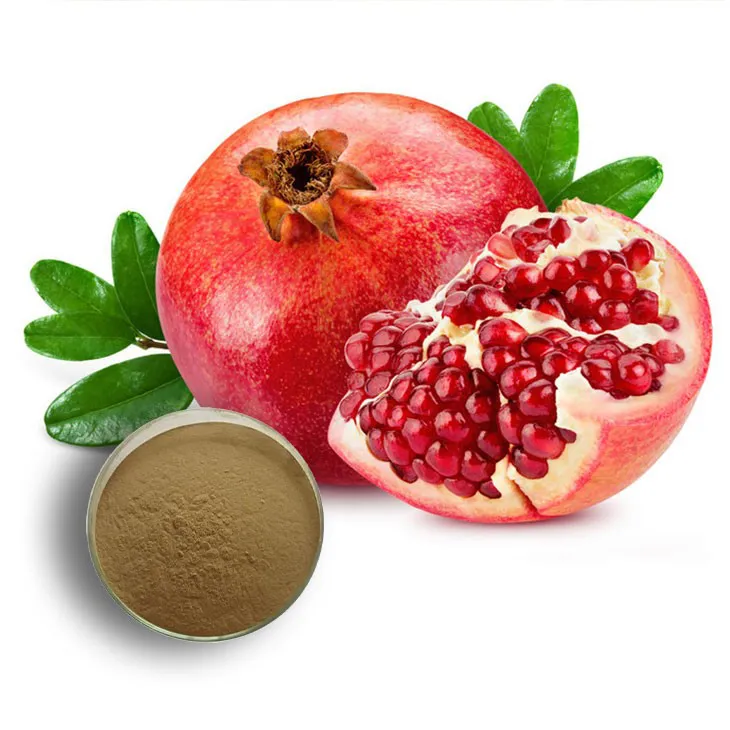- 0086-571-85302990
- sales@greenskybio.com
The Best Sources of Natural Pomegranate Extract.
2024-11-27

Introduction
Pomegranates have long been revered for their numerous health benefits, largely due to the rich variety of antioxidants and other beneficial compounds they contain. Pomegranate Extract has gained significant popularity in recent years, being used in various industries such as pharmaceuticals, cosmetics, and the food and beverage sector. Understanding the best natural sources of Pomegranate Extract is crucial for obtaining high - quality products with maximum efficacy.

Organic Farms
1. Pesticide - Free Advantage
Organic farms are an excellent source of Pomegranate Extract. One of the main reasons is that they avoid the use of pesticides. Pesticides can leave residues on fruits, which may contaminate the extract during the extraction process. By eliminating pesticides, organic pomegranates ensure that the resulting extract is pure and free from potentially harmful chemical contaminants. This is especially important for applications in the health and wellness industry, where consumers are increasingly demanding clean and natural products.2. Soil Quality and Nutrient Management
Organic farming practices often focus on maintaining and improving soil quality. Organic matter is added to the soil regularly, which enriches it with essential nutrients. Pomegranate trees grown in such well - nourished soil tend to produce fruits with higher concentrations of beneficial compounds. For example, the antioxidants in pomegranates are thought to be influenced by the nutrient availability in the soil. Organic farms may use natural fertilizers like compost and manure, which release nutrients slowly over time, providing a steady supply to the growing pomegranates.3. Biodiversity and Ecosystem Support
Organic farms also support greater biodiversity compared to conventional farms. This biodiversity can have a positive impact on pomegranate growth. For instance, a diverse range of insects and other organisms can contribute to pollination and natural pest control. Bees, butterflies, and other pollinators are attracted to the diverse flora on organic farms, which helps in the proper fertilization of pomegranate flowers. Additionally, natural predators of pests can keep pest populations in check without the need for chemical pesticides. This harmonious ecosystem can lead to healthier pomegranate trees and, consequently, better - quality extract.
The Mediterranean Region
1. Ideal Climate Conditions
The Mediterranean region is known for its ideal climate for pomegranate production, making it a prime source of high - quality pomegranate extract. The region enjoys long, sunny summers and mild, wet winters. The ample sunlight during the growing season is crucial for photosynthesis, which enables pomegranate trees to produce and store more of the beneficial compounds. The warm days and cool nights characteristic of the Mediterranean climate also contribute to the development of complex flavors and higher concentrations of antioxidants in the pomegranates.2. Soil Composition
The soil in the Mediterranean region has a unique composition that is well - suited for pomegranate cultivation. It is often rich in minerals such as potassium, which is important for fruit development and the accumulation of nutrients in the pomegranates. The soil's texture and drainage characteristics also play a role. Good drainage prevents waterlogging, which can be detrimental to pomegranate trees. The combination of the right soil and climate allows pomegranates from this region to have a high extract potential.3. Traditional Farming Practices
In the Mediterranean, there are long - standing traditional farming practices for pomegranates. Farmers in this region have passed down knowledge from generation to generation on how to best cultivate, harvest, and store pomegranates. These traditional methods often involve careful pruning of the trees to ensure proper air circulation and sunlight exposure, which can enhance the quality of the fruit and its extract. Additionally, the timing of the harvest is carefully determined based on the ripeness of the fruit, which is crucial for obtaining the maximum amount of beneficial compounds in the extract.
Wild Pomegranate Varieties
1. Unique Genetic Traits
Wild pomegranate varieties can be a great source of distinct and potent pomegranate extract. These wild varieties often possess unique genetic traits that have been developed over time through natural selection. For example, they may have evolved to survive in harsher environmental conditions, which could lead to the production of higher levels of certain antioxidants or other bioactive compounds. Their genetic makeup may also result in different chemical profiles compared to cultivated varieties, offering new opportunities for the development of novel extracts with unique properties.2. Adaptability and Resilience
Wild pomegranates are typically more adaptable and resilient than their cultivated counterparts. They can tolerate a wider range of environmental factors such as drought, extreme temperatures, and poor soil quality. This adaptability may be linked to the presence of specific genes that enable them to synthesize protective compounds more efficiently. These compounds could potentially be concentrated in the extract, making it a valuable source for industries looking for natural ingredients with enhanced functionality.3. Preservation of Genetic Diversity
Utilizing wild pomegranate varieties for extract production also helps in the preservation of genetic diversity. As cultivated pomegranates may be subject to genetic narrowing due to selective breeding for specific traits, wild varieties represent an untapped reservoir of genetic material. By exploring and using wild pomegranate sources for extract, we can contribute to the conservation of these genetic resources while also benefiting from their unique chemical compositions.
Other Considerations
1. Harvesting and Processing Methods
Regardless of the source of the pomegranates, the harvesting and processing methods play a crucial role in the quality of the extract. Pomegranates should be harvested at the right time of maturity to ensure the highest concentration of beneficial compounds. For example, if harvested too early, the fruits may not have fully developed their antioxidant content. After harvesting, proper processing techniques are essential. This includes careful extraction methods to preserve the integrity of the bioactive compounds. Traditional extraction methods such as cold - pressing are often preferred as they can minimize the degradation of heat - sensitive compounds.2. Quality Control and Certification
To ensure the quality of pomegranate extract, strict quality control measures and certification are necessary. Suppliers should adhere to international standards for food safety and quality. This includes testing for contaminants, ensuring accurate labeling, and verifying the potency of the extract. Certifications such as organic certification, GMP (Good Manufacturing Practice), and ISO standards can provide assurance to consumers and manufacturers alike that the pomegranate extract is of high quality.3. Sustainability
Sustainability is also an important consideration when choosing the source of pomegranate extract. Farms should practice sustainable farming methods to ensure the long - term availability of pomegranates. This includes water conservation, reducing waste, and promoting environmental protection. For wild pomegranate sources, sustainable harvesting practices need to be implemented to prevent over - exploitation and ensure the survival of these valuable genetic resources.Conclusion
In conclusion, there are several excellent sources of natural pomegranate extract. Organic farms offer pure and pesticide - free extracts, while the Mediterranean region provides pomegranates with high extract potential due to its ideal climate and soil. Wild pomegranate varieties bring unique genetic traits and the potential for novel extracts. However, it is important to also consider factors such as harvesting and processing methods, quality control, and sustainability when choosing the best source of pomegranate extract. By taking all these aspects into account, we can ensure that we obtain high - quality pomegranate extract for various applications in a responsible and sustainable manner.
FAQ:
What are the benefits of pomegranate extract?
Pomegranate extract is rich in antioxidants and other beneficial compounds. Antioxidants can help combat oxidative stress in the body, which is associated with various health issues such as aging and certain diseases. It may also have anti - inflammatory properties and potentially contribute to heart health, among other possible benefits.
Why are organic farms a good source of natural pomegranate extract?
Organic farms are excellent sources because they avoid using pesticides. Pesticides can contaminate the pomegranates and the resulting extract. By not using pesticides, organic farms ensure that the extract is pure and free from potentially harmful chemical residues.
How does the climate in the Mediterranean contribute to high - quality pomegranate extract?
The Mediterranean climate provides a perfect balance of sun, soil, and water. The ample sunlight allows the pomegranates to grow and develop fully, while the specific soil composition and proper water availability contribute to the production of pomegranates with high extract potential. These factors work together to enhance the quality and quantity of the beneficial compounds in the pomegranates, making them ideal for extract production.
What makes wild pomegranate varieties a great source of extract?
Wild pomegranate varieties may have unique genetic traits. These genetic differences can lead to the production of distinct and potent extracts. The unique genetic makeup might result in higher levels or different types of beneficial compounds compared to cultivated varieties.
How can one ensure the quality of natural pomegranate extract?
To ensure the quality of natural pomegranate extract, one can look for products sourced from reliable places such as organic farms or regions with a reputation for high - quality pomegranate production like the Mediterranean. Check for certifications that guarantee the purity and authenticity of the extract. Also, research the brand and its manufacturing processes to ensure they follow strict quality control measures.
Related literature
- The Antioxidant Properties of Pomegranate Extract: A Comprehensive Review"
- "Pomegranate Extract: Sources and Their Impact on Health"
- "Mediterranean Pomegranates: A Superior Source for Extracts"
- ▶ Hesperidin
- ▶ Citrus Bioflavonoids
- ▶ Plant Extract
- ▶ lycopene
- ▶ Diosmin
- ▶ Grape seed extract
- ▶ Sea buckthorn Juice Powder
- ▶ Fruit Juice Powder
- ▶ Hops Extract
- ▶ Artichoke Extract
- ▶ Mushroom extract
- ▶ Astaxanthin
- ▶ Green Tea Extract
- ▶ Curcumin
- ▶ Horse Chestnut Extract
- ▶ Other Product
- ▶ Boswellia Serrata Extract
- ▶ Resveratrol
- ▶ Marigold Extract
- ▶ Grape Leaf Extract
- ▶ New Product
- ▶ Aminolevulinic acid
- ▶ Cranberry Extract
- ▶ Red Yeast Rice
- ▶ Red Wine Extract
-
Cassia Seed Extract
2024-11-27
-
Hops Extract
2024-11-27
-
Hesperidin
2024-11-27
-
Camu Camu Extract
2024-11-27
-
Kidney Bean Extract
2024-11-27
-
Maitake Mushroom Extract
2024-11-27
-
Sea buckthorn Juice Powder
2024-11-27
-
Honeysuckle Pollen
2024-11-27
-
Lavender Extract
2024-11-27
-
Apricot Powder
2024-11-27





















